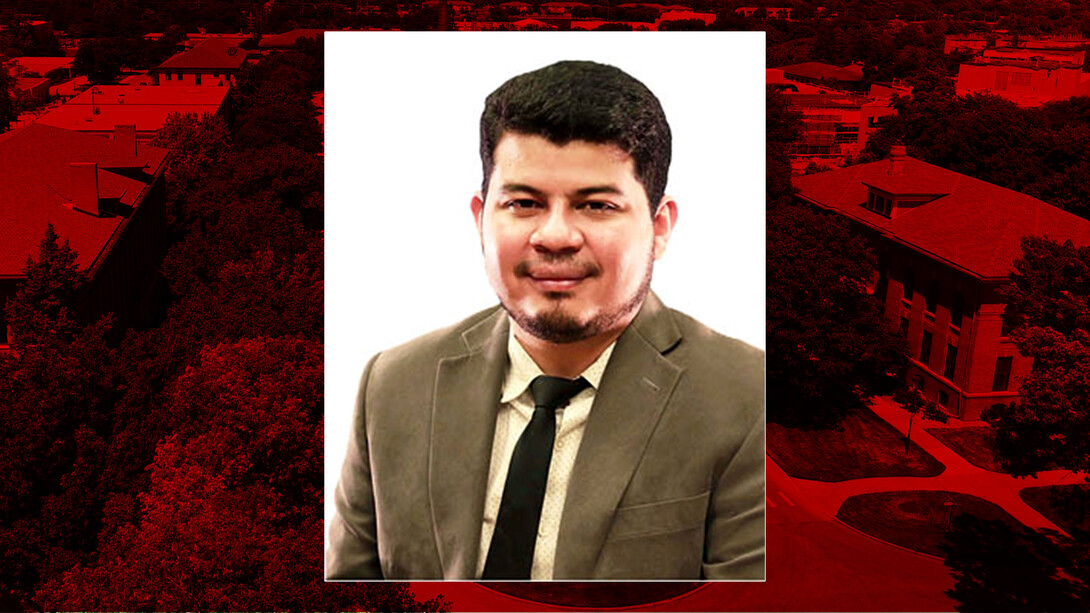
Lincoln, Neb. —
About me
I grew up in a small town called El Paraiso in Honduras, surrounded by mountains covered with coffee farms. Coming from a family of coffee farmers, coffee played a significant role in my upbringing. I pursued my bachelor's degree at the Universidad Nacional de Agricultura where I was first introduced to plant diseases. This sparked my interest in working with plant pathogens. My initial opportunity came during my undergraduate research at the University of Georgia where I studied the pathogen causing dollar spot on grasses, Clarireedia homoeocarpa. A year after, I attended Louisiana State University for and internship that turned into my master's degree focusing on the indirect effects of glyphosate on Cercospora Leaf Blight (CLB), a foliar fungal disease of soybean. I continued at LSU for my doctorate in plant pathology researching an emerging disease of soybean in the southern United States. During my doctorate, I was inspired to remain in academia driven by my passion for bridging the gap between applied and fundamental research and motivating the next generation of scientists. Before joining UNL, I completed a postdoctoral fellowship in New York, where I investigated the genetic diversity and evolution of human and animal bacterial pathogens.
What is your position at the University of Nebraska-Lincoln?
I am an assistant professor and quantitative fungal ecologist in the Department of Plant Pathology.
What drew you to the University of Nebraska-Lincoln?
This position is my dream job! As an assistant professor in quantitative fungal ecology, I have the opportunity to combine my passions for teaching, research, and fungi. Our lab engages in a variety of exciting activities from studying diseases in both agricultural and non-agricultural ecosystems including Nebraska's sandhills and prairies, to presenting our findings at international conferences. Our multidisciplinary approach, which incorporates state-of-the-art tools in fungal and bacterial biology, taxonomy, ecology, genomics, and bioinformatics, enables us to address fundamental questions across diverse microorganisms and ecosystems and build the framework to develop novel management strategies.
Our lab focuses on understanding the temporal and spatial population dynamics of soil-borne pathogens at the local, regional, and global scales. Currently, we are investigating a widespread soil-borne fungal pathogen that thrives in various environments and is a common re-emerging pathogen. Using signatures in its DNA sequences, we have reconstructed its diversity and evolutionary history uncovering fascinating insights into its host preferences. Given the impact of these pathogens on agricultural systems, we study patterns of fungicide resistance or natural inhibition across a variety of foliar and soil-borne pathogens, providing useful information for farmers in the region. Additionally, we often venture into the wilderness to discover rare fungi and unique plant pathogens. Nebraska provides an ideal setting to combine all these approaches allowing us to study variations in pathogen populations over time and across different ecosystems while providing useful information for stakeholders.
What aspect of working in an educational setting do you enjoy the most?
Interacting with students is the highlight of my work. Engaging with both undergraduate and graduate students provides some of the most rewarding experiences in academia.
What do you consider your greatest achievement?
One of my proudest accomplishments is describing a novel soil-borne pathogen species on soybean that produces antimicrobial and phytotoxic secondary metabolites. We named this pathogen Xylaria necrophora due to its propensity to cause necrotic-like damage to soybean roots.
What is something that most people don’t know about you?
I am an avid astrophysics enthusiast. I've watched hundreds of astrophysics documentaries, and they never cease to fascinate me. An ideal weekend for me involves watching nature and astrophysics documentaries, along with the occasional movie.
What is your life like outside of work?
Outside of work, I enjoy playing soccer regularly and socializing with friends after games and on weekends. I also like watching movies and TV shows. When I can, I spend time outdoors, but I am equally content staying at home.







